The discovery of insulin: A toxic story of monstrous egos
Why was Banting so furious at receiving the Nobel Prize for discovering insulin? As far as he was concerned, having to share the award with John Macleod was an insult, writes Kersten Hall

When Frederick Banting’s phone rang one morning in October 1923, it was the call that every scientist must dream of receiving. On the other end of the line, an excited friend asked Banting if he had seen the morning newspapers. When Banting said no, his friend broke the news himself. Banting had just been awarded the Nobel Prize for his discovery of insulin.
Banting told his friend to “go to hell” and slammed the receiver down. Then he went out and bought the morning paper. Sure enough, there in the headlines he saw in black and white that his worst fears had come true: he had indeed been awarded the Nobel – but so too had his boss, John Macleod, professor of physiology at the University of Toronto.
This is a tale of monstrous egos, toxic career rivalries and injustices. But of course, there is another character in this drama: diabetes itself.
According to a recent World Health Organisation (WHO) report, about 9 million people with type 1 diabetes are alive today thanks to insulin. I’m one of them, and it was my own shock diagnosis with this condition, just over 10 years ago, that first led me to investigate the discovery of insulin – the drug that I would be injecting several times a day for the rest of my life.
‘The pissing evil’
Diabetes derives its name from the ancient Greek word for “to flow” – a reference to one of its most common symptoms, for which the 17th-century English doctor Thomas Willis (1625-75) gave it the far more memorable name of “the pissing evil”. But frequent trips to the toilet are the least of a patient’s worries.
Before the discovery of insulin, a diagnosis of type 1 diabetes meant certain death. Unable to metabolise sugar from carbohydrates in their diet, patients became weak and emaciated until, due to the production of toxic compounds known as ketones, they slipped into a coma and died. Even at the start of the 20th century, there was little that could be done for patients with this condition, other than to put them on a starvation diet that might at best delay the inevitable.
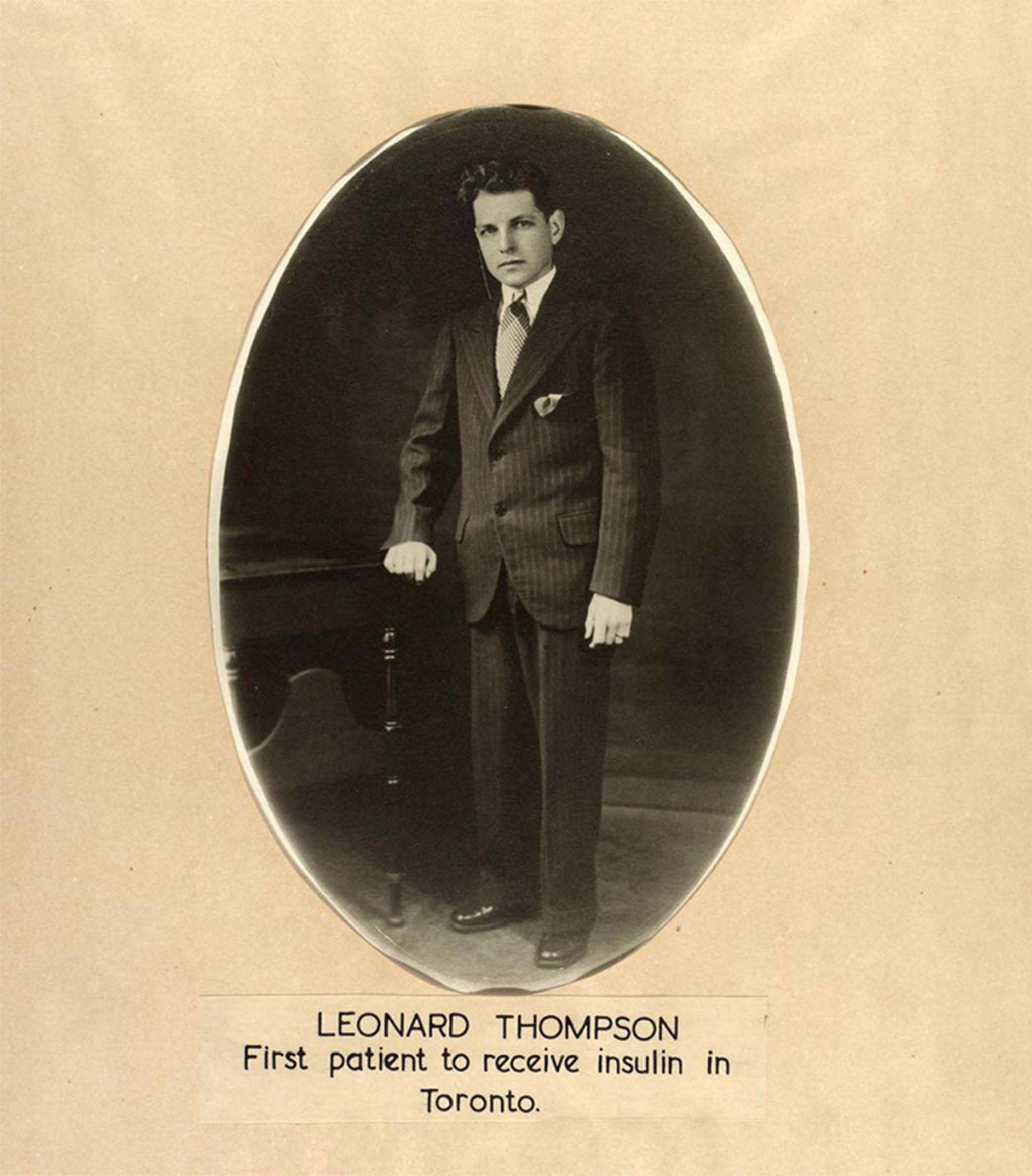
Little wonder then that doctors were stunned at the discovery of a hormone that could return the elevated sugars in diabetic patients to healthy levels and even bring them out of a coma. And since it was made by small islet-like patches of tissue in the pancreas, this substance was given the name “insulin”, derived from the Latin for “island”. When the eminent American diabetes doctor Elliott Joslin first used insulin to treat his patients in early 1922, he was so stunned by its power that he likened it to the “vision of Ezekiel”, the Old Testament prophet who is said to have seen a valley of dry bones rise up, be clothed in flesh and restored to life.
Joslin’s colleague, Walter Campbell, was equally impressed, but much less poetic. He described the crude pancreatic extracts as “thick brown muck”. And although the thick brown muck was saving lives, it very quickly became apparent that it could also take them. If injected in the wrong dose, it would cause a patient’s blood sugar levels to crash, sending them into hypoglycaemic shock and possibly a fatal coma.
For the newspapers, however, insulin was hailed as a miracle. And accolades quickly began to flood in for its discoverer. Banting received a letter from Canadian prime minister, Mackenzie King, granting him a lifetime pension from the government of Canada; he was invited to open the Canadian Exhibition (an honour reserved for “a distinguished Canadian or British citizen”), and was even summoned for an audience at Buckingham Palace with King George V. Then came the Nobel Prize.
Why so angry?
Macleod on the other hand was never to be trusted. He was the most selfish man I have ever known. He sought at every possible opportunity to advance himself
But why was Banting so furious? As far as he was concerned, having to share the award with Macleod was not just a travesty, but an insult. He thought that Macleod had no right whatsoever to any claim on the discovery of insulin, as an entry from a journal written in 1940 makes abundantly clear:
Macleod on the other hand was never to be trusted. He was the most selfish man I have ever known. He sought at every possible opportunity to advance himself. If you told Macleod anything in the morning it was in print or in a lecture in his name by evening … He was unscrupulous and would steal an idea or credit for work from any possible source.
And yet, had it not been for Macleod, Banting might never have been awarded the prize in the first place, and would probably have remained a struggling GP in provincial Ontario.
After his return to Canada from the western front as a wounded war hero, Banting found his career going rapidly downhill. Having trained as a doctor, he had hoped to establish a private medical practice. But such hopes seemed to be rapidly evaporating, and he found himself cooking his meals over a Bunsen burner, writing prescriptions for baby feed, and unable to afford even a trip to the cinema. Hopes of an alternative career as a landscape painter were quickly shot down in flames when his creative efforts were met with scorn by a local dealer. In every direction he looked, Banting saw a hostile world.
This also proved to be the case in his first meeting with Macleod. Banting had approached him with what he believed to be a novel approach for isolating the much-sought-after anti-diabetic hormone, made by the pancreas, that might at last tame diabetes. But instead of greeting him with unfettered enthusiasm, Banting recalled that Macleod had listened to him for a while, and had then begun reading some letters on his desk.

It wasn’t that Macleod lacked enthusiasm. Rather, he was simply concerned that although Banting had the inspiration for the work, he lacked the specialist surgical skills to carry it out. But he nevertheless gave Banting the benefit of the doubt and arranged for him to begin work with Charles Best, a final-year honours student. Their partnership has since been described as “a historic collaboration” – although, as Banting later recalled, it did not get off to the best start. For when he found some serious discrepancies in some of Best’s initial data, he laid down the law in no uncertain terms:
I was waiting for him, and on sight gave him a severe talking to. He thought that he was both God’s and Macleod’s appointed, but when [I] was finished with him he was not sure … We understood each other much better after this encounter.
With these teething troubles sorted, Banting and Best sweated away in the laboratory throughout the summer of 1921, making pancreatic extracts and testing their effects on the blood sugar levels of diabetic dogs. Banting may have been abrasive towards Best, but for his lab dogs, he had nothing but love and fondness:
I shall never forget that dog as long as I shall live. I have seen patients die and I have never shed a tear. But when that dog died I wanted to be alone for the tears would fall despite anything I could do.
With Macleod away in Europe for the summer, Banting wrote in great excitement to tell him about their latest results. But the response came as a disappointment.
Macleod gently pointed out that some of the experimental results were inconsistent and lacked appropriate controls. And when, on his return at the end of the summer, Macleod informed Banting that the University of Toronto could not agree to a list of his demands for more lab space and resources, Banting stormed out of the room, raging: “I’ll show that little son of a bitch that he is not the University of Toronto,” and threatening to take his work elsewhere.
By the end of 1921, things had got worse. Macleod felt it was now time for Banting and Best to present their work in public at a formal scientific conference. But when Banting rose to address the American Physiological Society at the University of Yale that December, the prestige of the audience took its toll on his nerves. His presentation was a disaster. He later wrote:
When I was called upon to present our work I became almost paralysed. I could not remember nor could I think. I had never spoken to an audience of this kind before – I was overawed. I did not present it well.

Desperate to snatch victory from the jaws of defeat, Macleod stepped in, took over and finished the presentation. For Banting, this was a brazen coup by Macleod to rob him of the credit for having discovered insulin – and to rub salt into the wound, it had been done in front of the most eminent doctors in the field. It confirmed Banting’s growing suspicion that insulin was slipping from his grasp – and he desperately needed to reassert his authority over the discovery.
An opportunity to do just that came in January 1922. By the time 14-year-old Leonard Thompson’s father brought him into Toronto General Hospital, the boy was at death’s door from type 1 diabetes. Banting described how the boy’s condition had left him “poorly nourished, pale, weight 65lbs, hair falling out, odour of acetone on his breath … appeared dull, talked rather slowly, quite willing to lie about all day”. One senior medical student gave a blunt and grim prognosis: “All of us knew that he was doomed.”
On the afternoon of 11 January 1922, Thompson was injected with 15cc of pancreatic extract that had been prepared by Best. Hopes were high, but the effect was disappointing. Despite causing a 25 per cent drop in Leonard’s blood sugar levels, he continued to produce ketones – a sure sign that the extract had only a limited anti-diabetic effect. But much more seriously, the extract triggered a toxic reaction, resulting in the eruption of abscesses at the injection site. Reporting on this work in the Canadian Medical Association Journal, Banting and Best drew the dismal conclusion that “no clinical benefit was evidenced” by the injection of their extract.
Two weeks later, on 23 January, Thompson was injected once again. And this time, the result was starkly different. When they published their work, the Toronto team recorded that Thompson “became brighter, more active, looked better and said he felt stronger”. His blood sugar levels were markedly reduced. But perhaps the most important result of all was that this time there were no toxic side effects.
I sat him down hard on the chair. I do not remember all that was said but I remember telling him that it was a good job he was so much smaller – otherwise I would ‘knock hell out of him’
‘I would knock hell out of him’
So what had changed in those two weeks? The answer was that this second batch of extract had not been prepared by Banting and Best but by their colleague James Collip. He was a biochemist by training, and with his expertise had been able to remove enough of the impurities from the raw pancreatic extract that, when injected, it did not cause a toxic reaction.
The secret of Collip’s success was alcohol. Banting and Best had themselves used alcohol to clean their preparations of impurities, but it was Collip who really cracked the method of doing this to make an extract that could be used to successfully treat a patient without causing an adverse reaction. He had also discovered that although insulin might save lives, it could take them, too. For when Collip injected some of his purified preparation into healthy animals, they became convulsive, comatose and eventually died. This was because Collip’s preparations were now so pure that they were plunging the animals into hypoglycaemic shock. This is a danger that every type 1 patient is today taught to recognise, and also – again thanks to Collip’s work – to remedy, with some quick-acting sugar.
For Banting, however, Collip’s discoveries were not a cause for celebration but a new threat. When Collip was reluctant to divulge the secrets of his success, Banting’s temper boiled over:
I grabbed him in one hand by the overcoat where it met in front and almost lifting him I sat him down hard on the chair. I do not remember all that was said but I remember telling him that it was a good job he was so much smaller – otherwise I would ‘knock hell out of him’.

As he sank further into a festering stew of fear and suspicion, Banting began calming his nerves with alcohol stolen from the lab. “I do not think that there was one night during the month of March 1922 that I went to bed sober,” he said.
Two months later, when Macleod made the first formal announcement of the discovery of insulin to the scientific world at a meeting of the Association of American Physicians in Washington, Banting was not present. He claimed that he could not afford the train fare.
But Banting was not the only person left seething at the decision of the Nobel committee. There was yet another expert who could claim he had discovered insulin – over 20 years before the Canadians.
The tragedy of Georg Zuelzer
In 1908, German doctor Georg Zuelzer had shown that pancreatic extracts could not only reduce the sugars and ketones in the urine of six diabetic patients but also bring at least one of those patients out of a diabetic coma. Calling his preparation “Acomatol”, Zuelzer had been so confident about its effectiveness in treating diabetes that he had even filed a patent on it.
Like Banting and Best, he too had faced problems with side effects. Impurities in the preparation had caused fever, shivering and vomiting in patients, and Zuelzer knew that this would have to be overcome if Acomatol was ever to be used clinically. But he also knew how to do this, because in his patent he had explained how alcohol could be used to remove these impurities.
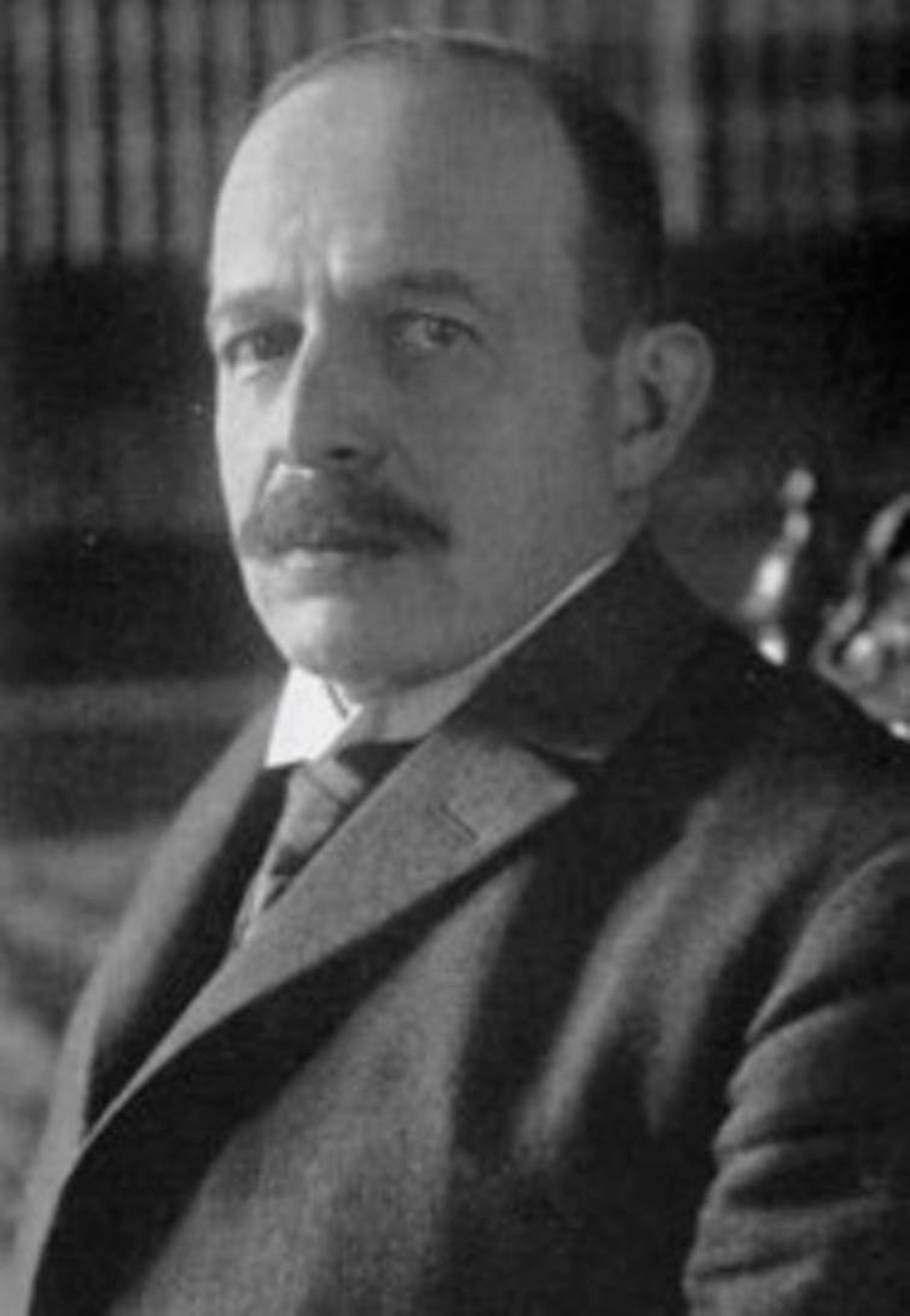
By 1914, things were looking hopeful. Zuelzer now had the support of Swiss pharmaceutical Hoffman La Roche, and best of all, his preparations were causing no signs of fever, shivering or vomiting. But now Zuelzer observed some new – and serious – side effects. Test animals became convulsive and sometimes slipped into a coma. And before Zuelzer even had the chance to work out what was going on, disaster struck.
With the outbreak of the First World War in the summer of 1914, Zuelzer’s research on insulin was brought to an abrupt halt from which it never recovered. Then, nearly a decade later, came the news that the Nobel Prize had gone to Banting and Macleod. This was a severe blow – and it was quickly followed by another.
Only now did Zuelzer realise that the side effects of convulsion and coma were not due to impurities, but rather the symptoms of hypoglycaemic shock arising from a preparation of insulin that was so pure it was causing a catastrophic crash in blood sugar levels. Little wonder that Zuelzer has been compared with a character in a Greek tragedy by historians Paula Drugemoller and Leo Norpoth. He had a potent preparation of insulin in his hands, only to have it snatched from his grasp by circumstances well beyond his control.
‘That son-of-a-bitch Best’
So why don’t we remember Zuelzer? According to the late historian Michael Bliss, the answer has much to do with Charles Best who, just like Zuelzer, felt hurt by the award going to Banting and Macleod. When Banting first heard that he had been awarded the Nobel, he sent a telegram to Best, who was in Boston at the time, saying: “Nobel trustees have conferred prize on Macleod and me. You are with me in my share always.”
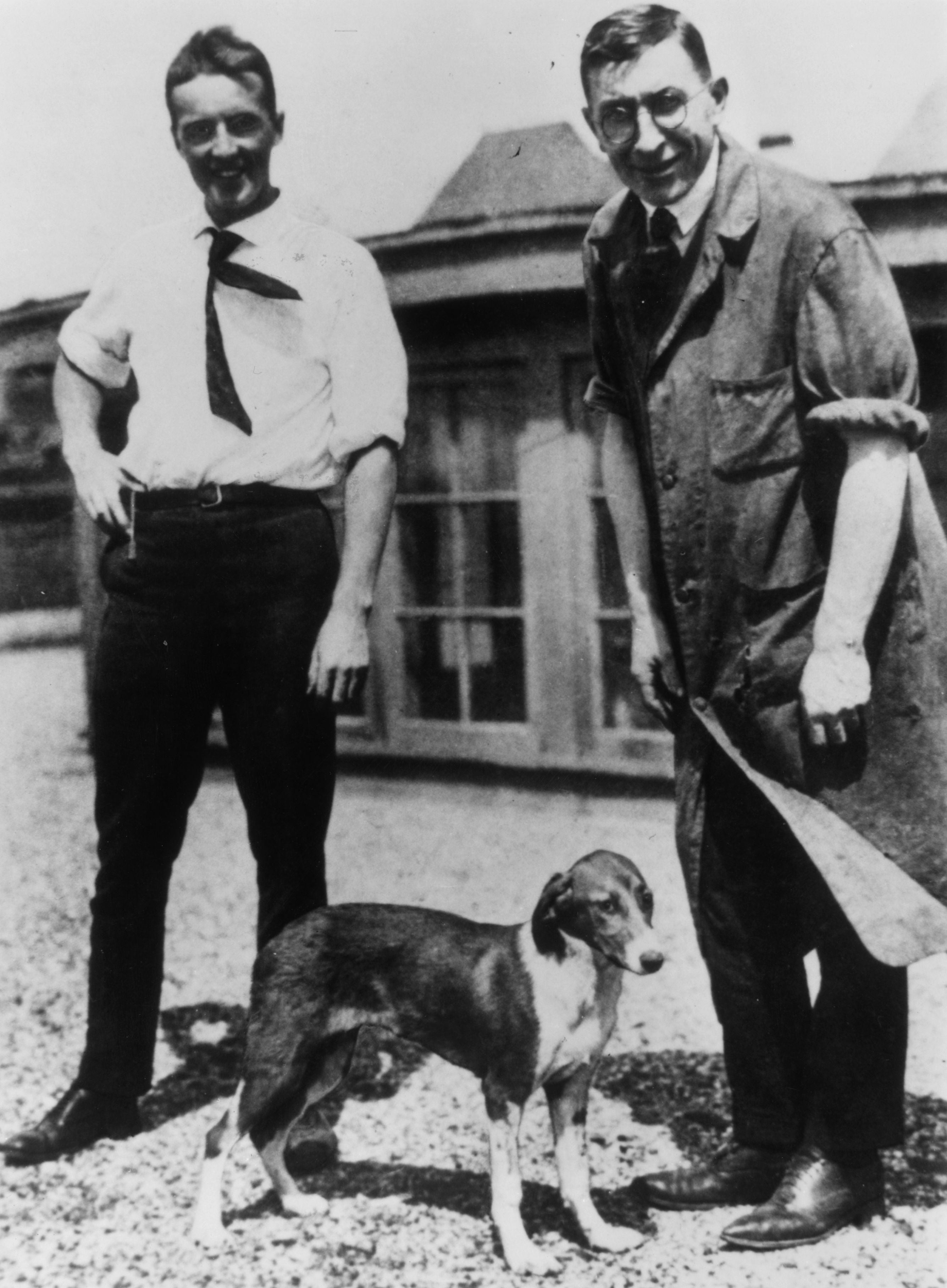
True to his word, he publicly announced that he would split his C$20,000 prize money with Best. But if Banting was hoping that this might offer Best some consolation for not having shared in the prize, he was mistaken. Best’s resentment at having been overlooked began to irritate Banting. In 1941, shortly before boarding a flight on a secret wartime mission to the UK, Banting made clear that his former generosity towards Best was long since gone:
This mission is risky. If I don’t come back and they give my [Professorial] Chair to that son-of-a-bitch Best, I’ll never rest in my grave.
His words proved to be tragically prophetic. Shortly after take-off, Banting’s plane crashed, and he was killed. As Macleod had died in 1935, Best and Collip were now the only remaining members of the original research team from Toronto that had discovered insulin. And Best was determined that his name would be remembered.
But to stake his claim on the discovery of insulin, Best needed to make clear exactly when this had taken place. Had it been during the summer of 1921, when, working alone, he and Banting had isolated pancreatic extracts that could reduce blood sugar levels in a diabetic dog? Or had it been in January 1922, when Leonard Thompson had first been successfully treated? If it was the latter, then Best had somehow to deal with the inconvenient fact that it had been Collip’s preparation – not his – that had actually been used to successfully treat the young man.
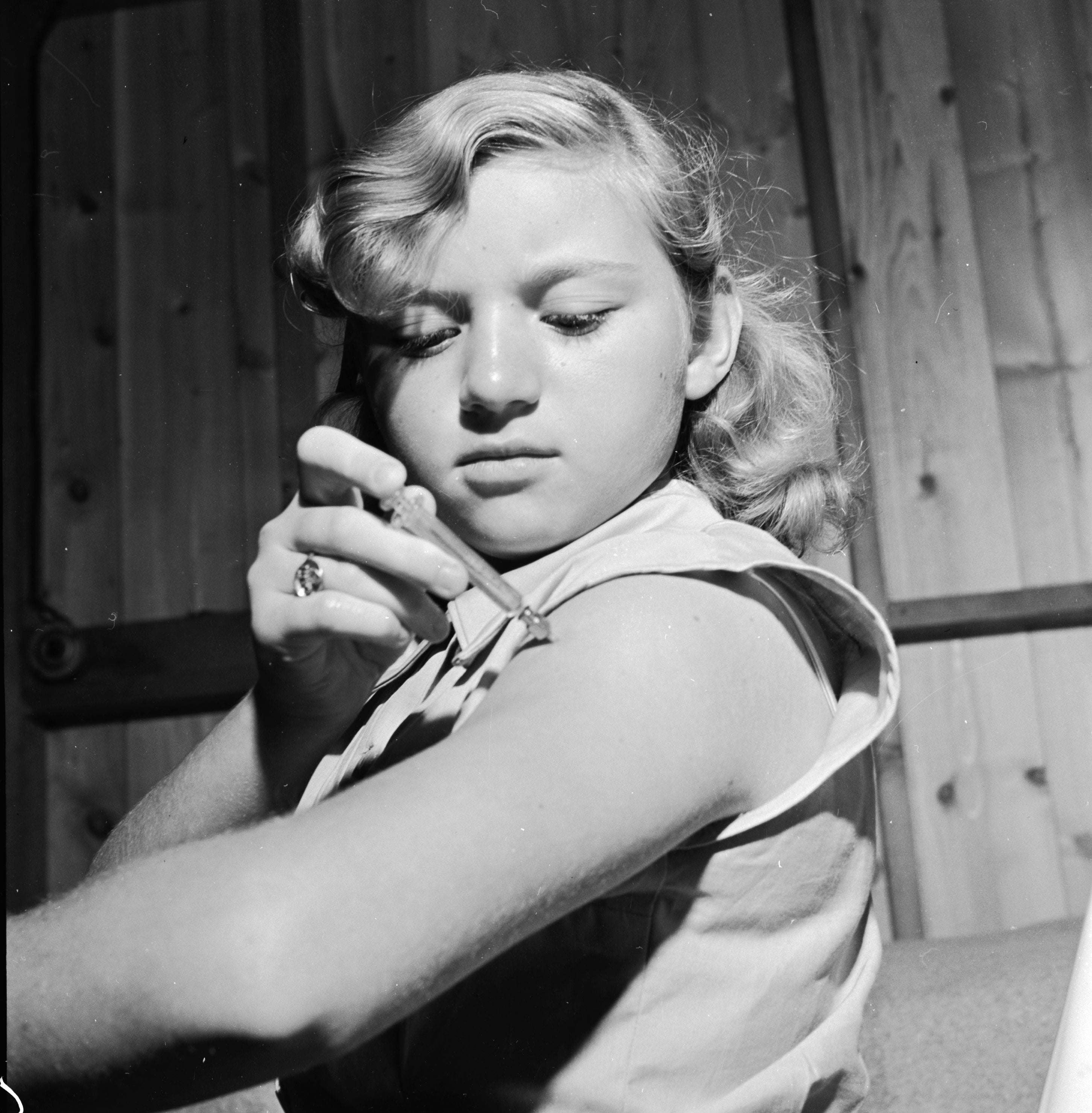
As Best’s star began to rise in the North American medical establishment, he gave many addresses in which, if he mentioned Collip’s contribution at all, it was either diminished or used only to highlight the crucial role that Best himself had played in recovering the production of insulin after Collip had temporarily lost the secret of its purification.
Best insisted that the pivotal moment in the story of insulin had been when Leonard Thompson was injected for the first time on 11 January, 1922 with an extract made by himself and Banting. That the real moment of therapeutic success had been two weeks later, when the boy had been treated with Collip’s preparation, was conveniently played down. At the same time, Best also claimed that the crucial innovation of using alcohol to remove toxic impurities had largely been his own.
None of them convinced the world of what they had … This is the most important thing in any discovery. You’ve got to convince the scientific world. And we did
He would subsequently go even further by insisting that insulin had been discovered during the summer of 1921, when he and Banting had been working alone, testing their extracts on diabetic dogs, well before Collip had arrived in Toronto. Collip’s response meanwhile was largely one of stoic silence.
Convincing the world
Best appeared finally to have secured his place in medical history. At least, so it seemed, until the late 1960s, when he received a letter that gave the wasps’ nest yet another poke. It revealed that during the summer of 1921, just as Banting and Best were embarking on their own research, a Romanian scientist called Nicolae Paulescu had already published similar experiments in a European scientific journal. But Paulescu’s scientific work has since been overshadowed by the ugly revelation of his antisemitic politics and the role that he played in inciting the Holocaust in Romania.
When Best was himself asked whether other researchers, such as Paulescu, Zuelzer, and a handful of others such as the Rockefeller scientist Israel Kleiner, deserved any credit for the discovery of insulin, his reply spoke volumes:
None of them convinced the world of what they had … This is the most important thing in any discovery. You’ve got to convince the scientific world. And we did.
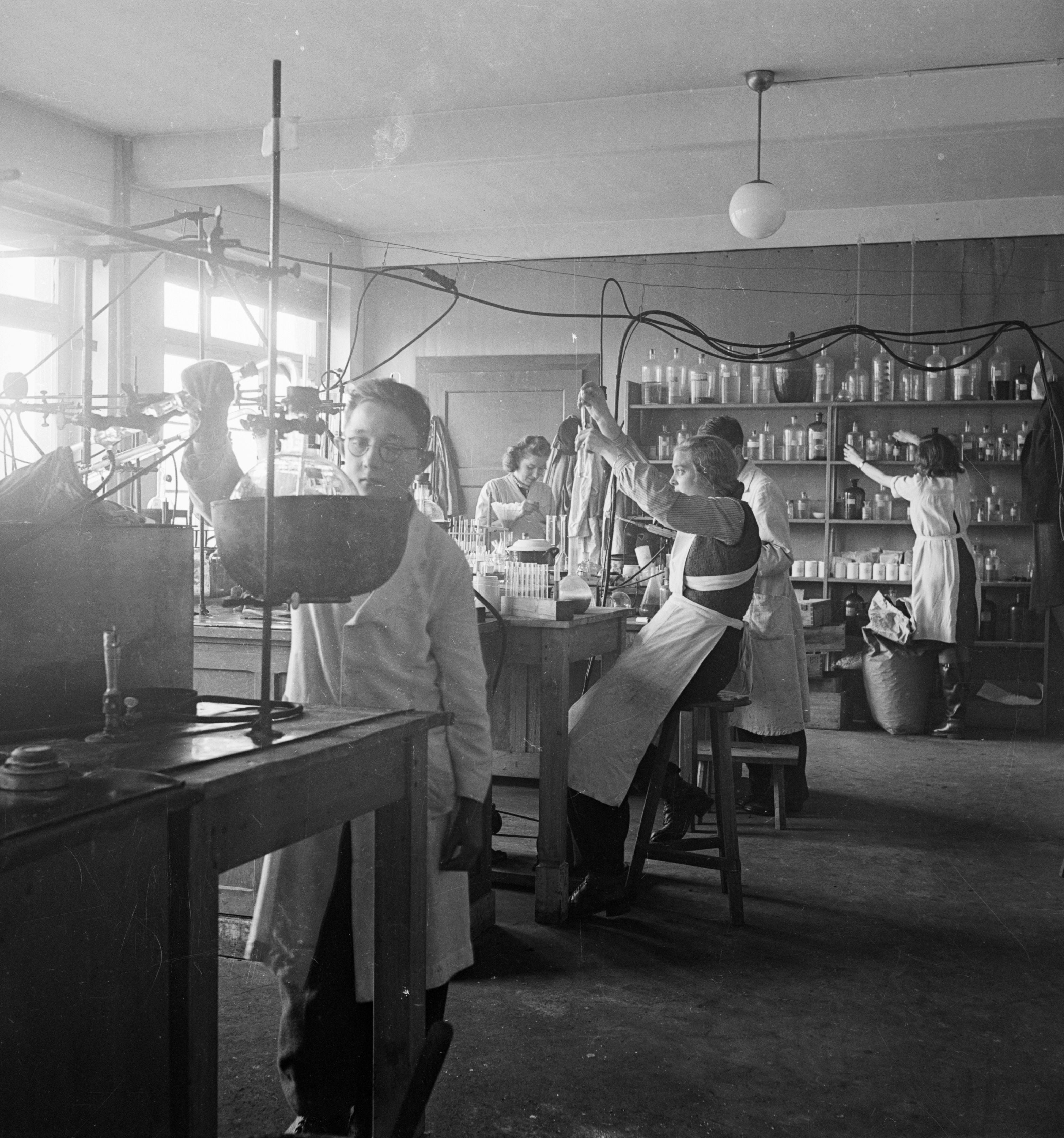
Michael Bliss, who has written extensively on the work of Banting and Best, has written about how Best appears to have been “deeply insecure about and obsessed with his role in history”. He added: “The fumbling attempts to manipulate the historical record would have been pathetic and hardly worthy of comment had they not been so grossly unjust to Best’s former associates and, for a time, so influential.”
Wall Street gold
Whatever judgements we may pass on Best, there is no denying that he had grasped a crucial insight about an important way in which science was changing. Doing experiments in the lab was only half the story: scientists had also to persuade the wider world of the value of those experiments. And by the time of his death in 1978, this was a lesson that scientists were taking to heart.
That September, a team of scientists from the City of Hope Hospital in southern California and the fledgeling biotechnology company Genentech in San Francisco gave a press conference to announce that they had done something amazing. Ever since the days of Banting and Best, type 1 patients had been having to treat themselves by injecting insulin recovered from the tissues of cows or pigs as a by-product of the meat industry. Now, thanks to the Genentech/City of Hope collaboration, they could, for the first time, inject themselves with human insulin.
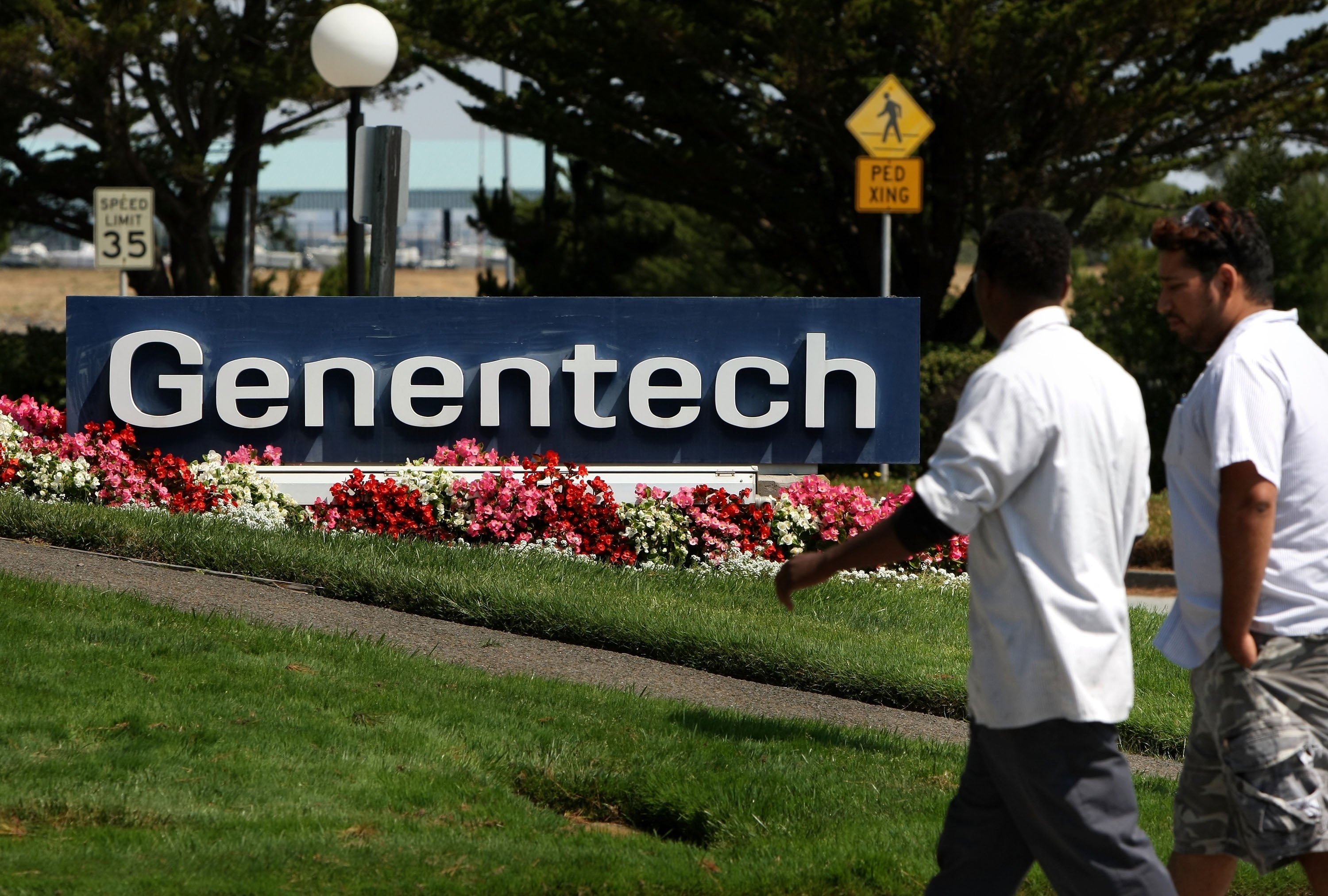
This achievement was a decisive victory in helping to win the hearts and minds of the media and the public, who were fearful of the new technology. Wall Street loved it, too.
When the bell was rung to open trading on the morning of 14 October 1980, dealers dived into a feeding frenzy for shares in the newly floated Genentech. It made its founders, venture capitalist Bob Swanson and scientist Herb Boyer, both multimillionaires.
But diabetes remained an incurable, chronic condition. Even as he was comparing the power of insulin with the vision of Ezekiel, Elliott Joslin was also offering a stark warning: “Insulin is a remedy which is primarily for the wise and not for the foolish.” Joslin’s point was that insulin could only be effective if its use went hand in hand with discipline, thought and responsible behaviour on the part of the patient.
This lesson applies elsewhere, too – but it may be one we don’t always want to hear. Speaking at the recent Cop26 summit in Glasgow, the UK government’s chief scientific adviser, Sir Patrick Vallance, pointed out that we can’t expect technology alone to solve all the problems we face. The truth is that, as much as we may wish for technological solutions to do all the heavy lifting, they can only be effective when they are accompanied by changes in our behaviour.
This is as true for managing diabetes with insulin as it is for dealing with the challenges of a pandemic through vaccines, masks and social distancing, or climate change through carbon capture, electric cars, and turning off the lights when we leave the room. And so, as we face challenges of the future, the story of insulin has important lessons for us all.
Kersten Hall is an author and honorary fellow in the school of philosophy, religion and history of science at the University of Leeds. This article first appeared on The Conversation.




Join our commenting forum
Join thought-provoking conversations, follow other Independent readers and see their replies
Comments